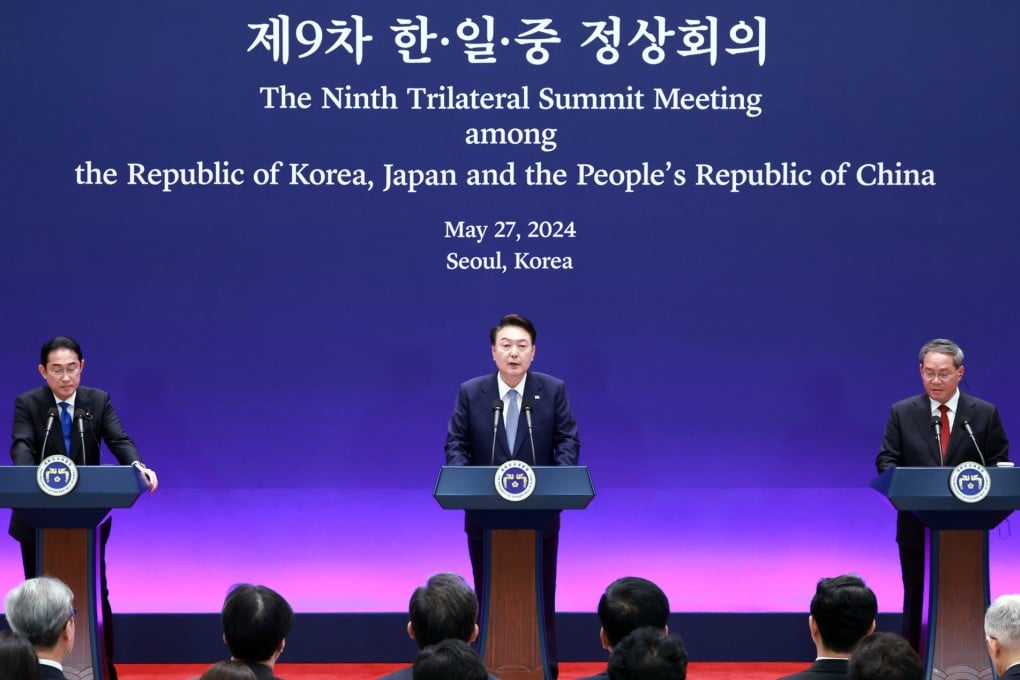Advertisement
Opinion | Return of China-Japan-South Korea talks brings hope of de-escalation
- The first trilateral summit in years avoided sensitive topics and aimed for low-hanging fruit
- However, it heralds a change from crisis management to collaboration. The talking now needs to be turned into action
Reading Time:4 minutes
Why you can trust SCMP

After a four-year hiatus, leaders from China, South Korea and Japan reconvened in Seoul this week for their ninth trilateral summit. The meeting occurred against a backdrop of high geopolitical tensions and regional security threats, punctuated by North Korea’s failed reconnaissance satellite launch hours after the gathering.
Advertisement
With Sino-South Korean ties at a nadir and Seoul-Tokyo relations enjoying a revival, the divergent values and priorities of the three nations raised questions about their ability to forge a consensus. Unsurprisingly, the summit declaration sidestepped thorny political controversies in favour of relatively apolitical areas of cooperation like people-to-people exchanges, sustainable development and disaster relief.
While issues like intellectual property and pandemic preparedness merited separate statements, escalating tensions on the Korean peninsula, in the South China Sea and over Japanese abductees were largely bypassed or discussed in a limited capacity.
Differences were also apparent. While all three countries affirmed the importance of denuclearising the Korean peninsula, Chinese Premier Li Qiang called on the “relevant parties to exercise restraint” – seen as an indirect rebuke of the strengthened military ties between the United States, Japan and South Korea that Beijing sees as escalating tensions.
Seoul and Tokyo, by contrast, denounced Pyongyang’s satellite launch plans, which violate UN sanctions and undermine the Korean peninsula’s stability. The diverging security visions confirmed the challenge of harmonising the trio’s regional priorities.
Advertisement
Despite such fissures, the summit sketched out blueprints for deeper cooperation. First, through more corporate engagement. Over 280 business officials and ministers convened a meeting on the summit sidelines, emerging with pledges to facilitate cross-border commercial ties and establish a permanent working group.

Advertisement
